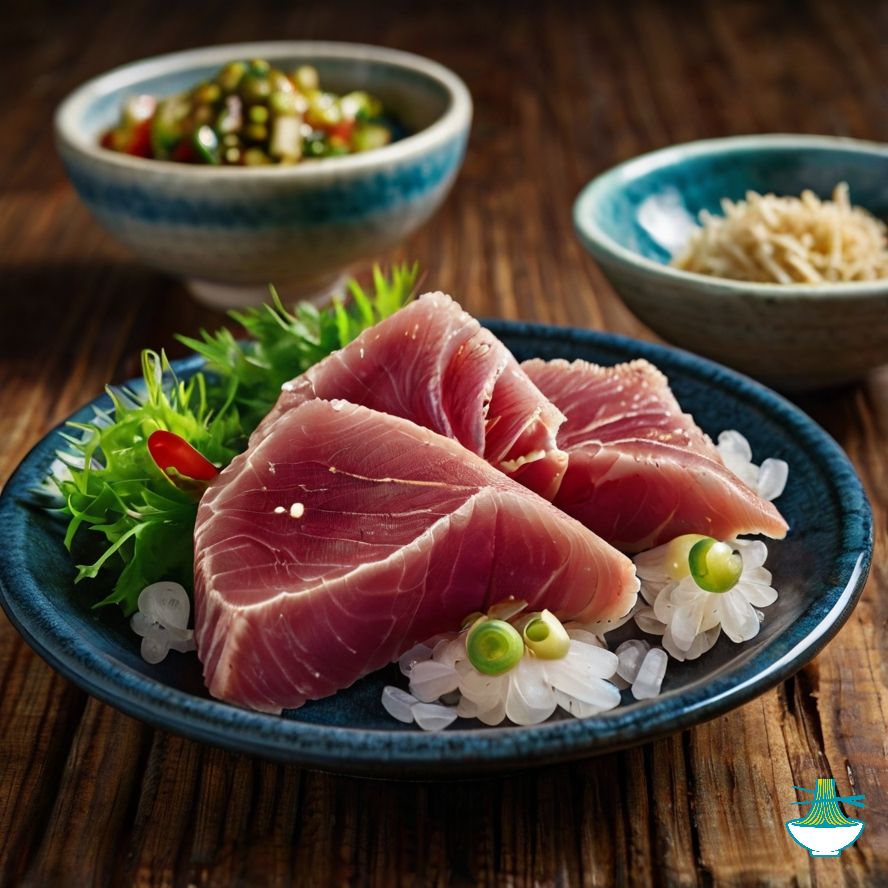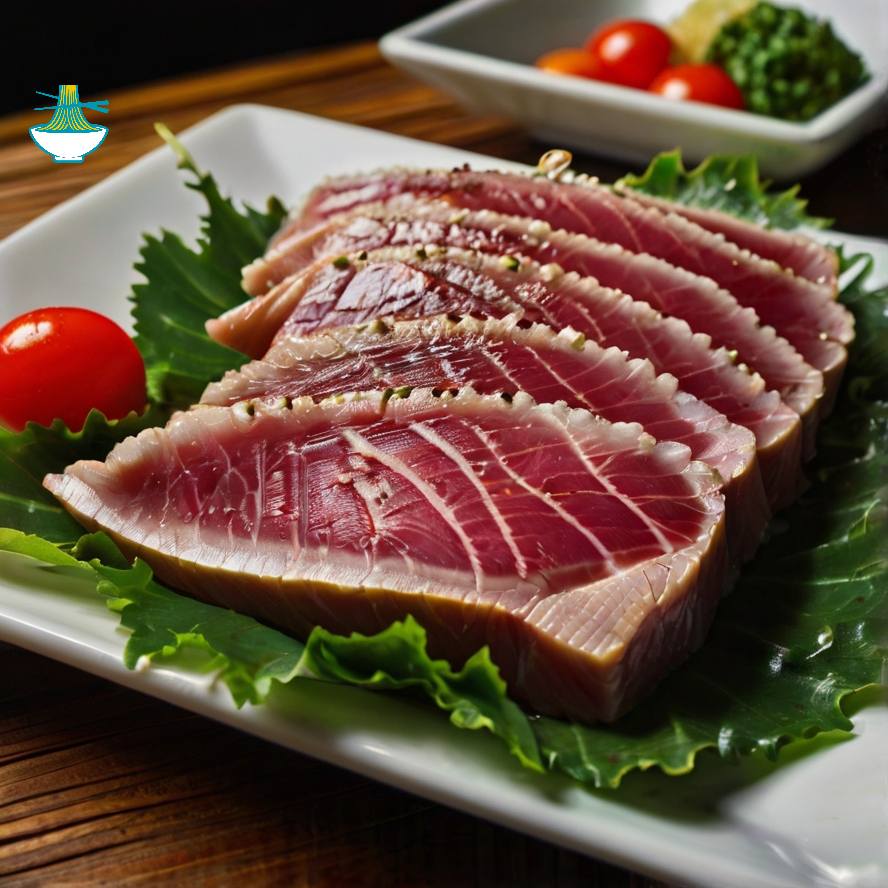Enjoy the flavors of Tuvalu with this fresh tuna dish.Whether grilled,fried,or served raw as sashimi,a staple in the local diet youcan cook it in 30min or less.
Tuna has been a vital part of Tuvaluan cuisine for generations, reflecting the island's reliance on the sea for sustenance. Traditionally prepared in various ways, it remains a beloved dish, embodying both cultural heritage and culinary expertise.
Ingredients:
- Fresh tuna
- Salt
- Pepper
- Cooking oil (for frying)
- Soy sauce (optional, for sashimi)
Method of Preparation:
1. For Grilled Tuna:
- Preheat grill to medium-high heat.
- Season tuna with salt and pepper.
- Grill tuna for 3-4 minutes on each side, or until desired doneness.
2. For Fried Tuna:
- Heat cooking oil in a pan over medium-high heat.
- Season tuna with salt and pepper.
- Fry tuna for 2-3 minutes on each side, or until golden brown.
3. For Tuna Sashimi:
- Ensure tuna is very fresh and sushi-grade.
- Slice tuna thinly against the grain.
- Serve with soy sauce for dipping, if desired.
Nutrition Value:
1. Fresh Tuna:
- Calories: Approximately 184 calories per 3.5 oz (100g) serving.
- Carbohydrates: 0g.
- Protein: About 29g per serving.
- Fat: Contains about 6g of fat per serving, including omega-3 fatty acids.
- Sodium: Varies based on preparation, typically around 50-60mg per serving.
- Cholesterol: Contains approximately 43mg of cholesterol per serving.
- Vitamins and Minerals: High in vitamin D, vitamin B12, selenium, and potassium.
- Nutritional Benefit: Provides high-quality protein, omega-3 fatty acids for heart health, and essential vitamins and minerals for overall health.
2. Salt:
- Calories: Negligible.
- Carbohydrates: 0g.
- Protein: 0g.
- Fat: 0g.
- Sodium: About 2,300mg per teaspoon.
- Cholesterol: 0mg.
- Vitamins and Minerals: Contains iodine, essential for thyroid function.
- Nutritional Benefit: Enhances flavor, aids in food preservation, and provides essential iodine.
3. Pepper:
- Calories: Negligible.
- Carbohydrates: Negligible.
- Protein: Negligible.
- Fat: Negligible.
- Sodium: Negligible.
- Cholesterol: 0mg.
- Vitamins and Minerals: Contains vitamin A, vitamin C, vitamin K, and manganese.
- Nutritional Benefit: Provides antioxidants, vitamins, and minerals, and adds flavor without adding calories.
4. Cooking Oil (for frying):
- Calories: Varies based on type and amount used (approximately 120 calories per tablespoon of vegetable oil).
- Carbohydrates: 0g.
- Protein: 0g.
- Fat: About 14g of fat per tablespoon, typically unsaturated fats.
- Sodium: Varies based on type and amount used.
- Cholesterol: Varies based on type; typically 0mg for vegetable oils.
- Vitamins and Minerals: Contains vitamin E and small amounts of vitamin K.
- Nutritional Benefit: Provides healthy fats and essential fatty acids, enhances flavor, and helps achieve desired texture in cooking.
5. Soy Sauce (optional, for sashimi):
- Calories: Approximately 8 calories per tablespoon.
- Carbohydrates: About 1g per tablespoon.
- Protein: Less than 1g per tablespoon.
- Fat: Negligible.
- Sodium: High sodium content, approximately 920mg per tablespoon.
- Cholesterol: 0mg.
- Vitamins and Minerals: Contains iron, manganese, and some B vitamins.
- Nutritional Benefit: Adds savory flavor (umami) to dishes, contains beneficial soy isoflavones, and provides small amounts of essential minerals.


Comments